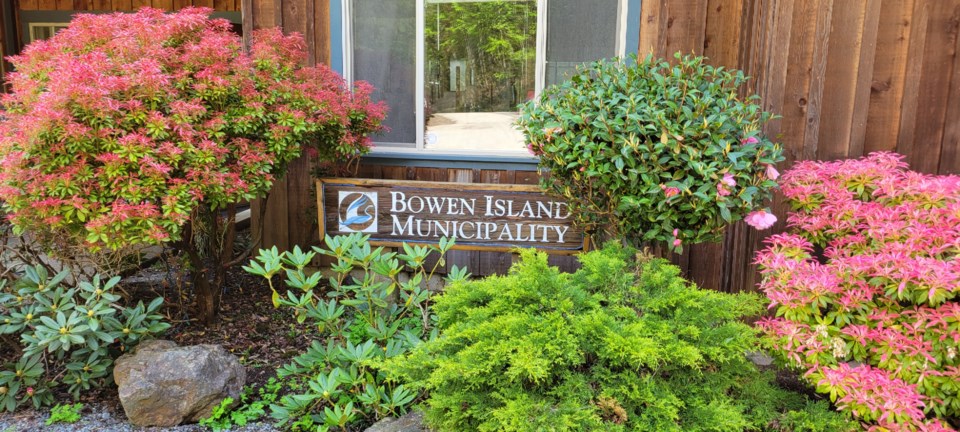Community Centre
Despite previous estimates that the new Community Centre on Bowen Island Trunk Road may be ready early in the new year, the latest guess for the doors to open is now mid to late-April.
“When we look at the critical path of all the dependant items, it’s likely that it will be around that time when we’ll see final completion and handover of that project,” said chief administrative officer Liam Edwards.
When asked by Coun. Tim Wake what the reasons are for the numerous delays, Edwards said part of the reason was “As with every project – especially on Bowen – the beginning had significant delays in terms of getting to the proper elevations to begin construction.” The CAO added it was also a challenge to find skilled workers for the project, and some of the construction estimates were overly optimistic.
The delay won’t affect recreation programming though, as the Bowen Children’s Centre has agreed to continue hosting classes until the Community Centre is complete. The owners of the current Municipal Hall at Artisan Lane have also agreed to extend the municipality’s stay into the spring.
Development Cost Charges
Efforts to recover costs in the Snug Cove Sewer System are expected to be finalized in the new year. For residential users, the development cost charges (DCC) will be based on a per capita rate. The commercial sector will be assessed on a rate per square metre, but that formula is still to be finalized.
It’s planned to be ready early in 2024 following more data analysis and a meeting with the development community, after which it will go to the Finance Advisory Committee and Snug Cove Sewer System Local Advisory Committee for review.
Metro Vancouver park proposal
Following a meeting with the Islands Trust Executive Committee (ITEC) in mid-October, the municipality sent a letter to Metro Vancouver explaining that significant changes would be needed to their proposed park at Cape Roger Curtis if they hoped to advance the project to a second reading.
“I believe at this point the applicant needs to know some direction from us,” said Mayor Andrew Leonard at the time. “My belief is that the application and the underlying concept at this point – from everything we’ve heard from the community, from our staff, and that I’ve experienced firsthand – is that there needs to be significant changes made to this that address the impacts of this project. And those haven’t been sufficiently addressed.”
During Monday’s meeting Edwards shared the most recent correspondence from Metro Vancouver. “Effectively their response was saying that they believe their application is in alignment with the Official Community Plan and the Islands Trust Policy Statements, and they respectfully request more details as to how they can achieve the concerns raised by the Islands Trust.” During a meeting in August, the ITEC found Metro’s park plan in violation of 10 of its organization’s policies.
“They (Metro Vancouver) did also state that they believe their application does address many of the concerns and conditions identified, and that several of those would be outside the scope of the project, requiring significant financial contributions from their level of government that they weren’t prepared to make,” continued Edwards. The municipality hasn’t responded yet, but the CAO said their reply will emphasize the message that it’s Metro Vancouver, not the municipality, who are responsible for doing the work to bring the park proposal in line with the Islands Trust policies.
“We have been rather clear, and at this stage we’re not in a position to provide that specificity they’re looking for. We can’t speak on behalf of the Islands Trust,” said Edwards.
“At the very least we would anticipate there would be a consideration of an amendment to their application, particularly around the intensity of use that is contemplated in their application. That might look like a reduction in their number of campsites, more concrete evidence on how they would manage traffic and volumes to and from the site, and some more concrete examples of how they would manage activities on the site,” said the CAO.



